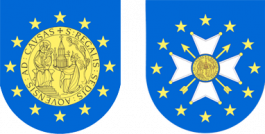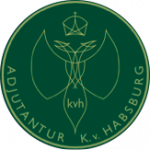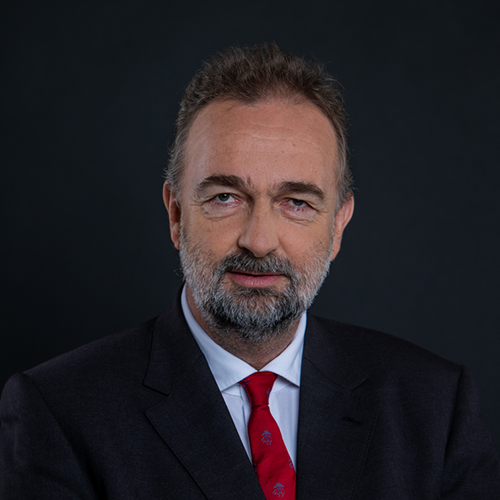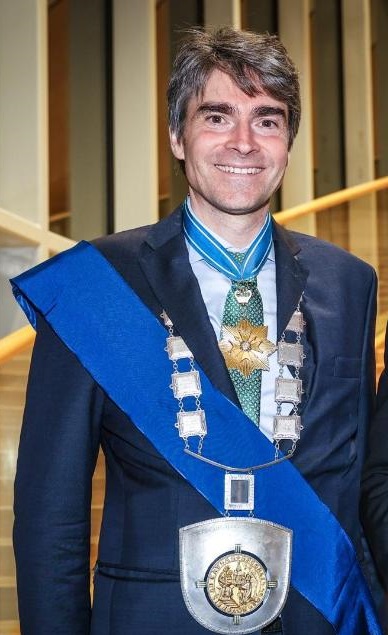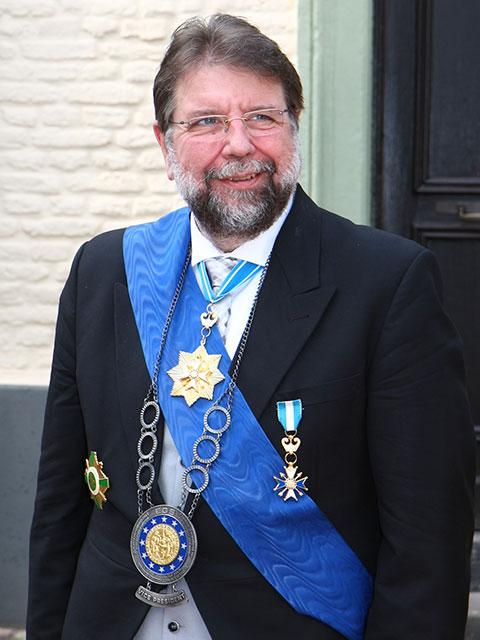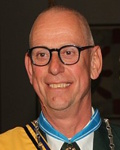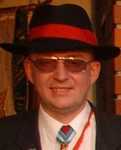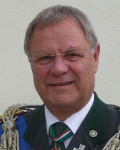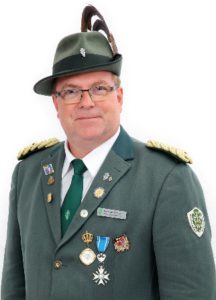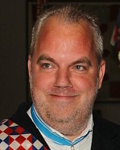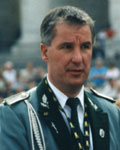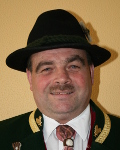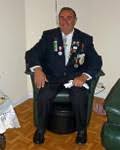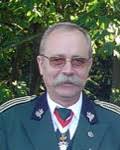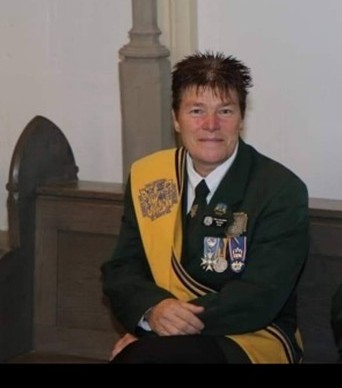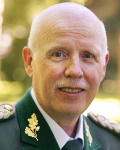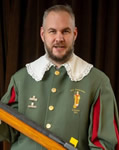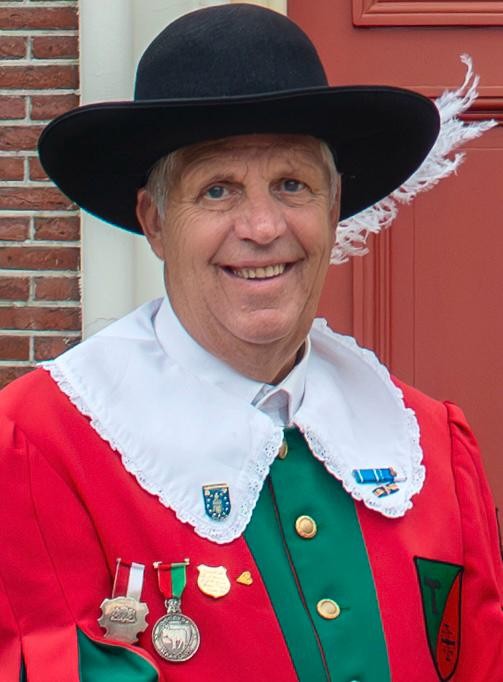Through words and deeds –
together we can achieve more
The Presidium and the Plenary Assembly are the two bodies through which the interests of the EGS are represented internally and externally.
All necessary measures and decisions are taken at the Plenary Assembly (highest decision-making body of the EGS) by the Presidium, which acts as the Executive Board. The diversity and individuality of the associations’ independence is specifically ensured by elected and voting representatives (delegates) of the member associations. The member associations are divided into 5 regions, each of which is represented by a chairperson (regional secretary). Due to its size, only Region 1 has a regional president and a regional secretary.
Our committees
The Executive Committee
The Presidium – acts as the Executive Board
The Presidium is responsible for promoting harmonious cooperation between the associations, managing the affairs of the EGS and representing the EGS in and out of court.
The Presidium organises the ‘European Shooters’ Meeting of the EGS” in cooperation with the organiser.
The Presidium meets at least twice a year (spring and autumn meetings).
The elections to the Presidium are held at different times. Members are elected for a term of six years. The President, Treasurer and Legal Advisor are elected together in one group, and the Vice Presidents, General Secretary, Social Officer and Master of Ceremonies are elected in the other group (three years later). By-elections are held for the remainder of the current term of office.
The members of the Presidium are elected by the Plenary Assembly and have a seat and vote in the Plenary Assembly.
The Executive Presidium (statutory board) consists of:
1. President
2. Vice presidents
3. General Secretary
4. Vice General Secretary
5. Treasurer
The statutory board is obliged to submit an annual report on the past year of the EGS to the Plenary Assembly.
The Presidium proposes the membership fees for the member associations to the Plenary Assembly for approval.
The Extended Presidium also includes
the Regional President of Region 1 and the Regional Secretaries of the regions, as well as the Legal Advisor, the Social Officer, the Master of Ceremonies and the Head of the Shooting Commission.
Plenary Assembly
Plenary Assembly – highest decision-making body The members of the Presidium are elected by the Plenary Assembly for a period of six years.
All elected or delegated representatives (delegates) of the member associations are represented at the Plenary Assembly.
The President acts as chair of the Plenary Assembly and exercises the rights of the chair. If necessary, he or she may limit the speaking time of members of the Plenary Assembly and lead the discussion. He or she decides on the order in which members speak and vote on motions and may also exclude members of the Plenary Assembly from the discussion of individual agenda items or from the entire meeting in the event of a serious breach of duty.
The Plenary Assembly is responsible for:
- Electing the executive presidium
- Approving the minutes of the plenary assembly
- Passing resolutions on the statutes, regulations (articles of association) and rules of procedure of the EGS
- Setting the membership fee
- Passing resolutions on the budget
- Electing the cash auditors
- Discharging the entire presidium
- Passing resolutions on guidelines for the awarding of medals and honours
- Admitting new members
- Passing resolutions on the exclusion of a member
- Awarding the European Shooters’ Meeting and the spring and autumn conferences
Honorary Council
The Honorary Council may admit individuals who have rendered outstanding services to the preservation and promotion of European marksmanship or to church or civil society over many years.
Shooting Committee
The Shooting Commission currently consists of representatives from Belgium, Poland, Germany and the Netherlands.
The Shooting Commission advises the Presidium on all matters relating to firearms legislation. The members of the Shooting Commission are responsible for ensuring compliance with regional firearms legislation at EGS shooting events. On this basis, they also review applications from candidates for the EGS King and Prince shooting competitions.
All decisions made by the Shooting Commission in relation to shooting events are binding and cannot be appealed.
Functional description
Patron
As Patron of the EGS, the Grand Master holds a representative position and participates as a formative advisor with a seat and vote in the meetings of the Presidium and the Plenary Assembly.
The Grand Master of the EGS is also Grand Master of the Knighthood of Holy Sebastian in Europe.
President
The President has special responsibilities as chairman of the EGS.
Together with the General Secretary, he represents the EGS with all rights and obligations and, in particular, performs representative duties both internally and externally.
The President maintains close contact with the other members of the Presidium and keeps himself informed of their work. He sets the dates for the meetings of the EGS bodies and supervises their work.
The President chairs the meetings of the Presidium and the Plenary Assembly. If he is unable to attend, he is represented by a Vice President appointed by him.
Vice Presidents
The Vice Presidents support the President in his duties and take over the President’s duties in his absence or if he is unable to perform them.
The Vice Presidents are members of the EGS Executive Committee and participate in the Plenary Assembly with voting rights.
General Secretary
The General Secretary is responsible for the general management and organisation of the EGS‘s affairs. He prepares the meetings of the committees and ensures that all decisions of the Plenary Assembly and the Presidium are implemented. Together with the President, he represents the EGS with all rights and obligations and, in particular, performs representative duties both internally and externally.
He shall be invited to all meetings of the EGS Association and shall be entitled to attend them.
Vice General Secretary
The Deputy Secretary General assists the General Secretary in his duties and takes over the General Secretary’s duties in his absence or in the event of his incapacity.
The Deputy Secretary General has a seat on the EGS Executive Committee and participates in the Plenary Assembly with voting rights.
Treasurer
The Treasurer manages the finances of the EGS. He must submit the audited annual financial statements and a budget proposal for the following year to the Plenary Assembly each year. He must give the cash auditors full access to the business documents necessary for auditing and provide them with comprehensive information.
Regional Secretaries
Each region elects its own chairperson (regional secretary).
The chairpersons look after the associations/societies in their region and represent the region both internally and externally.
The member associations are divided into 5 regions, with each region being represented by 1 chairperson (regional secretary). Due to its size, Region 1 has 1 regional president and 1 regional secretary.
European Majesties
The EGS determines a European King/Queen and a European Prince/Princess within the framework of the European Shooters’ Meeting (EST).
The European majesties are determined in the traditional manner of the King’s shooting competition, as practised in the host region.
For the duration of their term of office, they are advisory members of the Presidium and the Plenary Assembly.
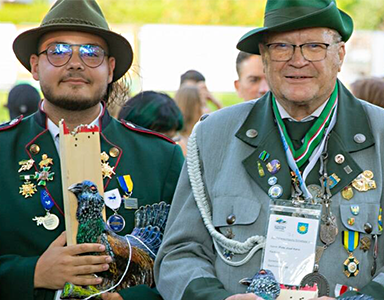
Jozef Karol Pluta & Maksymilian Kuropka
Social Officer
The Almoner of the Knighthood, who is also the Social Officer of the EGS, oversees the social work of the EGS and the Knighthood, which initiates cross-border activities and campaigns. His main task is to review projects worthy of support. The projects to be supported should have a social background and be related to the objectives of the EGS. The Almoner and the Presidium propose social projects for funding to the plenary assembly.

Legal Advisor
As a legal advisor, the main task of the Legal Advisor is to identify legal problems at an early stage and to develop and implement solutions.
The Legal Advisor provides advice on legal issues such as copyright law and deals with contract management, including liability issues.
Master of Ceremonies
The master of ceremonies is like a ‘director’ for liturgical matters: he is responsible for coordinating and ensuring the smooth running of a church service or investiture mass and for ensuring that the ritual rules are observed. He welcomes and checks the participants and ensures that the investiture proceeds in a calm and dignified manner.
Shooting instructors
The members of the Shooting Commission advise the Executive Committee on all matters relating to firearms legislation. They are responsible for ensuring compliance with regional firearms legislation at EGS shooting events. On this basis, they also review applications from candidates for the EGS King and Prince shooting competitions.
All decisions made by the Shooting Commission in relation to shooting events are binding and cannot be appealed.
The Shooting Commission has no role in the knighthood and is therefore not part of the Knights’ Council.
